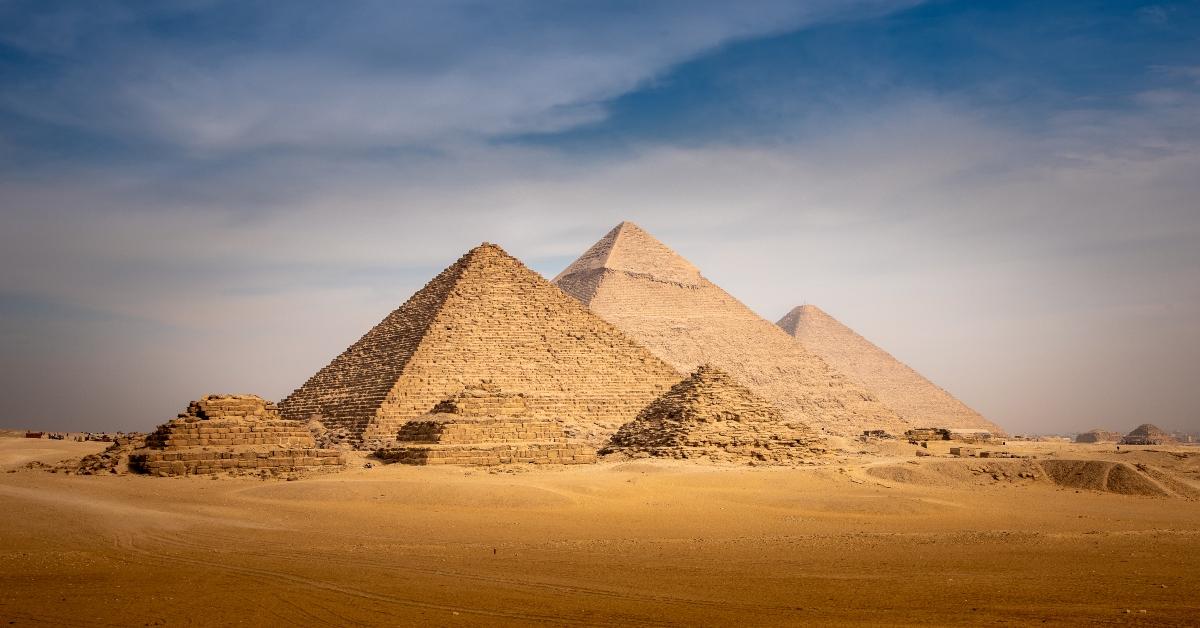What is Environmental Determinism? Here's How it Compares to Possibilism
Environmental determinism is a somewhat forgotten concept that correlates to modern globalization in a rather meaningful way.
Updated Oct. 21 2020, 3:28 p.m. ET

For those who don’t know — that is to say, most people — environmental determinism is the belief that the physical features of an environment determine the patterns of human culture and societal development. This means that the landforms, ecology, and climate of a particular region are the only factors responsible for how human culture develops in that region. It’s a high-brow topic and one that most laypersons may not be actively searching for outside of a college philosophy course.
Such a concept feels somewhat out-of-place in a globalized society. The development of our current globalized culture is the result of interconnectivity, of international cooperation, trade, war, and the sharing of all the distinct cultural aspects that make each individual culture unique. But if the roots of these individual cultures, if their ancient civilizations were influenced by the mountains and rivers in their regions, as environmental determinism assumes; then was our current globalized society influenced by the “landscape” of something more ephemeral?

What is environmental determinism?
Environmental determinism holds that the climate and physical landscape of a place influences not only the psychological outlook of a society but defines the characteristics of any culture that develops within that region. As an example, those who believe in environmental determinism believe that the continuously warm weather of subtropical regions leads to underdeveloped, more tribal societies. The argument is that the consistent weather and readily available resources like food and freshwater meant the people living there did not have to work as hard to ensure their survival, and thus, never needed to develop their culture any further.
This theory goes as far back as ancient China, Greece, and Rome, where several scholars including Hippocrates took the concept even further. Guan Zhong, an early Chinese chancellor, held that swift and twisting rivers made for people who were, in his words, "greedy, uncouth, and warlike.” Ethnocentrism fits into this as well. The idea being, that if a culture is isolated, its society and culture will inherently adopt cultural traits that are unique only to them.

How did early geography and climate correlate to environmental determinism?
It’s hard to argue that early civilizations were not affected by their environment. Looking back into ancient cultures and comparing them with one another, we can see how something as simple as climate affected their belief systems. Take ancient Mesopotamia and ancient Egypt, for example. Both are polytheistic societies, but while Egypt’s gods are steady and trustworthy, Mesopotamia’s were capricious and even malicious at times.
This differentiation between belief systems has everything to do with the weather and climate of both societies. In Mesopotamia, located between the Tigris and Euphrates rivers, flooding and drought were common and unpredictable factors of their daily life. Thus, they believed their gods could punish or reward on a whim. In Egypt, however, the steady Nile River was a beacon of life-giving sustenance to a culture that honored their gods and reaped the benefits of their continual favor.

How do modern geography and climate correlate to environmental determinism?
The modern era saw many changes in terms of environmental determinism. As the world connected, there was less need for such philosophies. But Charles Darwin’s “On the Origin of Species” brought new attention to this forgotten concept. Evolutionary biology based on a person’s place of birth became less a topic for philosophers and more a subject of scientific study.
By the early 20th century, the idea was being talked about in many academic circles. Within two decades, it had fallen out of favor. Critics cited the inherent racism in the theory and looked deeper into its eurocentric origins. The theory perpetuated imperialism and with the world reeling from a brutal war, there was little sense in talking about it after that.

What is environmental possibilism?
In place of environmental determinism, a new concept arrives. Environmental possibilism states that even if the environment sets limitations for cultural development, it does not wholly define a culture. Rather, culture is defined by the opportunities and decisions that human beings make in response to dealing with the limitations, difficulties, or advantages of their physical landscape.

How does environmental determinism apply today?
Despite its flaws, one might apply environmental determinism to the modern, globalized world if one looks at the global “climate” and “landscape” as more intangible rather than corporeal. As a culture, we are not influenced by storms or rivers, we are influenced by discourse, by media, by the internet, and the digital age. We are influenced by cuisine, political parties, memes, and shared interest.
These concepts affect people on a global scale, they influence trends and push change forward. Sometimes the effect is good, sometimes it’s detrimental to society. But this has always been the way of things. Thankfully, we are no longer limited by simple determinism, not when possibilism has so much more merit.